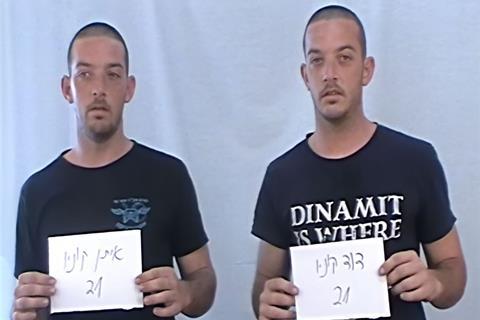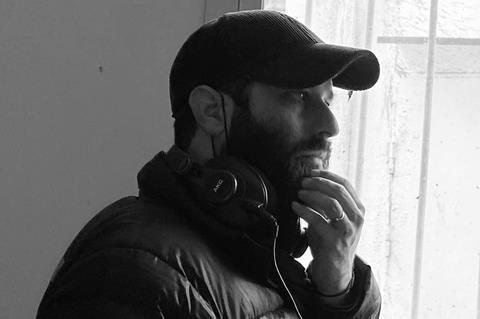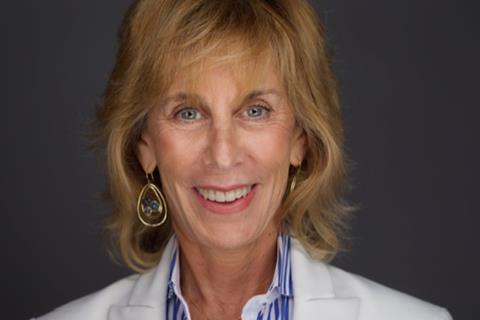
Tom Shoval’s documentary A Letter To David, which is playing in Berlinale Special, marks a return to the festival for the Israeli filmmaker - but not in a circumstance he could have imagined when his first feature, Youth, played in Panorama back in 2013.
Shoval described A Letter To David as a “multi-layered cinematic letter” to his friend David Cunio, who was taken hostage by Hamas with his brother Ariel from the Nir Oz kibbutz on October 7, 2023.
David Cunio starred in Shoval’s Youth alongside his twin brother Eitan, which focused on the powerful bond between two brothers and, in a tragic irony, revolved around a kidnapping.
They all came to Berlin together for the premiere in 2013. “We were very excited and so naïve and feeling a little bit like stars,” recalled Shoval.
A Letter To David blends behind-the-scenes footage from Youth, tapes of the Cunio family and their kibbutz as well as contemporary interviews to paint a portrait of David and his family and the dire, unimaginable situation in which they have found themselves.

Shoval said he could not bear that David was only known to people as a picture on a poster calling for his return from Gaza. “I wanted to create this sort of portrait that shows who he is, his character, his life, his hobbies.”
Berlin premiere
It was important to Shoval to premiere the film at Berlin. “I have this kind of mystic feeling that if I will close all the circles, then David will be here, and be released and we will see him.”
He did not know what to expect when he submitted the film to the festival. “But the hug we got from [Berlin artistic director] Tricia Tuttle and the team appreciating the film, and wanting to screen it, and also closing this circle, with David, this is the ideal choice for me.”
The festival’s support for the film was clear on the red carpet during the Berlinale’s opening night which saw multiple German actors accompany Tuttle in holding up photos of David.
Of the latest news on David, Shoval said: “We know that he’s still a hostage. We don’t know it for sure, but we have good reason to believe that he’s still alive. And also Ariel. They are in the tunnels, which is a bad thing.”
“We hope that the second phase of the deal [between Israel and Hamas] will happen, and so we will see them. And we are very much afraid, because there is this friction now. Hopefully that will pass and the deal will be sealed, and all the hostages will be back, every one of them.
“But that’s all we know. It is frustrating. I know David, he is very strong, and I believe that he will beat everything that needs to be beaten so he can be released, and he will be here alive and well. I can’t see another ending but that for him and for Ariel.”
Human portrait
A Letter To David is produced by Alona Refua, Maya Fischer and Roy Bareket of Israel’s Green Productions and Nancy Spielberg of US-based Playmount Productions. It was financed by Israeli broadcaster Hot8, Israeli fund The New Fund For Cinema And Television, as well as Jewish focused philanthropic organisations The Blavatnik Family Foundation, Boston Rose and Jewish Story Partners.

Spielberg, sister of Steven, became involved with the film after evacuating from Israel with her daughter and young grandchild in the chaotic aftermath of the Hamas attacks. Back in the US, she was introduced to Shoval by mutual friend Jake Paltrow.
“I was looking to do an October 7 film, but I was struggling with all of the footage that I had seen of the carnage,” Spielberg explained. “I thought, ‘How can I do a film and desensitize?’ Because you sit in an editing room and watch something over and over. There is no desensitisation to the footage. It really does not get any easier to watch.”
One her roles was to provide an outsider’s perspective to give the film a universal appeal, contextualising events for international audiences.
Focusing on the human side was also important. Referring to family footage where David kisses his mother, or embraces his father, Spielberg said: “I wanted the film to have a chance outside of Israel borders, to understand David, to understand the family. I was saying, How often do you see a son say, “Mom, where’s my kiss?’ And a father who goes into his son’s arms [for so long] that David says, ‘Did you fall asleep?’
“It’s a family that constantly appreciated their closeness and they had so much love. It didn’t take a tearing apart to create that love. It’s always been there. So you can imagine the kind of pain they are all in now.”






![The Brightest SunScreen[Courtesy HKIFF]](https://d1nslcd7m2225b.cloudfront.net/Pictures/274x183/3/5/0/1448350_thebrightestsunscreencourtesyhkiff_312678.jpg)


















No comments yet